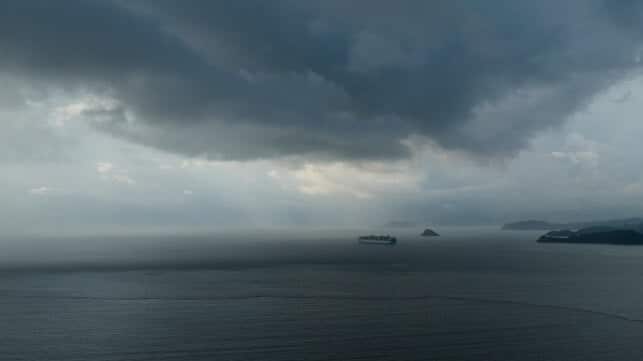The Best Ocean Books of 2024
Exploring the Depths: Ocean Literature of 2024

The ocean has always been a source of fascination and mystery. In 2024, several authors have delved into its depths, exploring its history, current challenges, and future possibilities. These ocean-focused books provide insights into the complex relationship between humanity and the sea. From marine biology to maritime history, these works highlight the urgent need for conservation and understanding of our oceans. Here, we explore some of the most compelling ocean literature published this year.
What the Wild Sea Can Be: A Historical Perspective
In “What the Wild Sea Can Be,” marine biologist Helen Scales takes readers on a journey through the ocean’s tumultuous history. She begins with the ancient trilobites, creatures that once thrived in the seas. Scales recounts how swimming reptiles, like the ichthyosaurs, dominated the oceans until the catastrophic Permian extinction, which occurred around 250 million years ago. This historical context sets the stage for understanding the current state of our oceans.
Scales warns that we are in the midst of a mass extinction event. She cites alarming data showing that the current extinction rate is significantly higher than what the fossil record indicates. Some species, like the invasive lionfish, are thriving in changing waters, while others, such as emperor penguins, face dire threats from melting sea ice in Antarctica. Scales emphasizes that while humans often try to “invent their way out of trouble,” the ocean may need a different approach. She advocates for allowing the ocean to regenerate naturally, urging humanity to take a step back and support its recovery. This includes reintroducing species, regulating industrial fishing, and reducing pollution. Scales’ book is a call to action, reminding us that the future of our oceans is in our hands.
The High Seas: A Journey Beyond Borders
Olive Heffernan’s “The High Seas” explores the vast, unclaimed waters that lie beyond national jurisdictions. Heffernan, a seasoned journalist, shares her personal experiences from her first voyage to the high seas in 2001. Through her narrative, she introduces readers to a diverse cast of characters, ships, and marine life in this often-overlooked realm. Contrary to popular belief, the high seas are not lawless; they are governed by a complex web of organizations that frequently ignore scientific advice. This neglect has led to overfishing, seabed mining, and significant ecological changes due to climate change.
RINA to Map Out Cruise Industry’s Sustainable Future in Pivotal CLIA Study
Heffernan’s book arrives at a crucial moment. The year before its publication, governments agreed on the High Seas Treaty, aimed at conserving biodiversity beyond national borders. While this treaty is a step forward, Heffernan expresses a sense of pessimism about its implementation. She urges readers to view the high seas not as an isolated entity but as interconnected with our coastal territories. By fostering a deeper understanding of these waters, Heffernan hopes to inspire a collective responsibility for their protection. Her book serves as a reminder that the health of the high seas is intrinsically linked to the well-being of our planet.
Mapping the Deep: A Personal Journey
Dawn Wright’s “Mapping the Deep” chronicles her groundbreaking journey to the Challenger Deep trench, the deepest point on Earth. As the first Black person to reach this depth, Wright’s story is both inspiring and informative. The book traces her path from a childhood spent near the beach in Maui to her current role as chief scientist at Esri, a geographic information company. Wright’s narrative is interwoven with discussions about the history of deep-sea exploration, the challenges of deep-sea mining, and the contributions of women in oceanography.
Wright’s journey is not just about exploration; it also highlights the importance of community support. She shares insights from notable figures like Kathy Sullivan, the first person to complete both a spacewalk and a trip to Challenger Deep, and filmmaker James Cameron, who has a deep passion for the ocean. Through engaging anecdotes and vivid photographs, Wright’s book appeals to young adults and anyone interested in ocean exploration. It serves as a reminder that the ocean is not just a scientific frontier but a place of personal connection and discovery.
